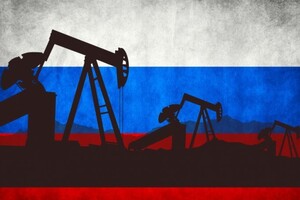Before the sanctions against Russia, the discount on the Russian Urals was symbolic.

Discount price of the Russian brand of export oil mixture Urals to Brent's reference oil continues to grow, averaging about $ 30. This was reported by Russia's Interfax with reference to the RF Ministry of Finance.
“The average price of the Urals for the monitoring period from March 15 to April 14 was $ 79.81 per barrel. The average price on Brent futures with the nearest delivery date for the last 30 calendar days is $ 108.5. Therefore, the discount on the Urals, which was traditionally symbolic – $ 1-2 – and began to grow rapidly due to the introduction of anti-Russian sanctions, amounted to about $ 28.7, “- said in a statement.
During the previous monitoring period, which captured part of the “pre-sanction” era (February 15 – March 14), the difference in the average price of Urals and Brent was much smaller – $ 95.59 against $ 104.97, ie the discount was less than $ 10. For the calendar March, the average price of the Urals was $ 89.05, and Brent – $ 112.46, ie the discount reached $ 23.4, or about 20% of the value.
Recall, the Ministry of Energy closed access to statistical information on production and the export of oil and gas, which could be “used as additional pressure on the Russian market and its participants.”
.
Russia is already considering options to sell Russian oil on the world market under Western sanctions .
A clear example of effective circumvention of sanctions against Russian oil was shown by one of the international oil giants Shell , which purchases raw materials from Russia and mixes them with oil of other grades, obtaining the notorious “Latvian mixture”. Probably one of the keys to solving the problem is the emergence of analogues, such as “Turkish mixture”.




